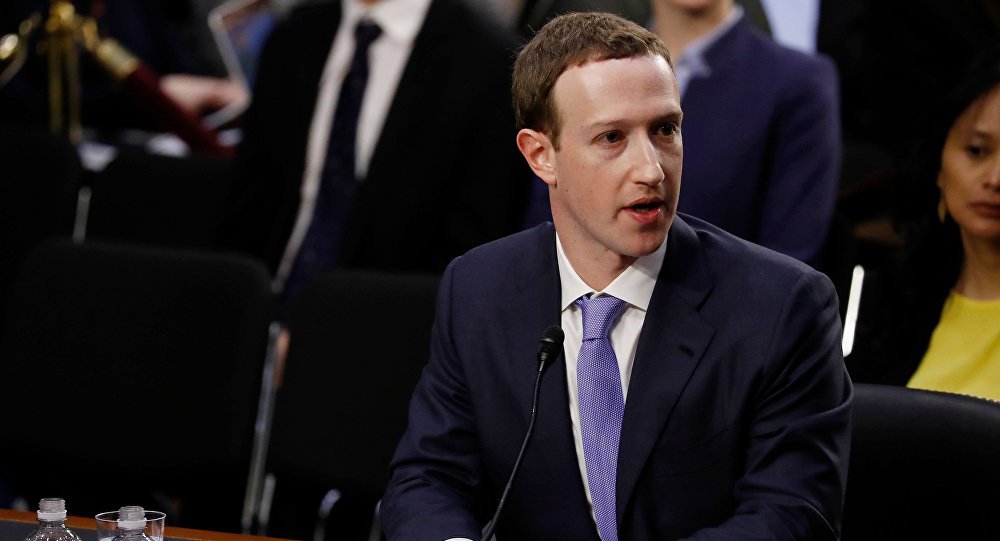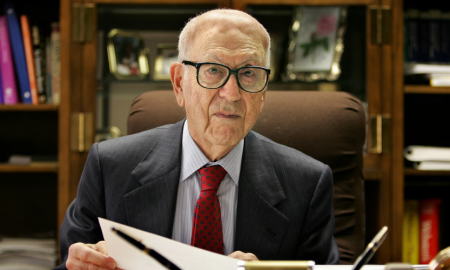
Alarm Raised Over Data Monitoring of Unregistered Facebook Users

Data Gathering of Non-members
There is a growing worry over Facebook’s regard for information privacy and specifically, the way it gathers data of non-members. The fear came once CEO Mark Zuckerberg stated that the biggest social platform in the world monitors individuals, either they are registered on Facebook or not.
The unease on privacy issues have surrounded the platform since March when the management admitted that details of members going to millions got into the possession of Cambridge Analytica accidentally, a data analysis consultancy outfit which estimated President Trump’s campaign during the election processes in 2016 and other political clients.
Last Wednesday, during an interrogative session with Zuckerberg by the American Representative, Ben Luján from the Democratic side, he said for safety purposes, Facebook is also responsible for gathering information of non-members who don’t a valid account on the platform.

Zuckerberg was invited for an interrogation by the House Committee on Energy and Commerce in respect to Facebook’s activities on the safety of its users’ details
Legal experts and proponents of privacy instantly kicked against the idea, while many others are saying that Facebook should find means for non-members to know about the level of knowledge concerning them that Facebook is possessing.
Rep. Luján suggested that such loophole must be remedied by Zuckerberg, proposing for that type of divulgence, an action which would bring uncertain impacts on Facebook’s capability to get ads. Zuckerberg declined to reply and by Friday, Facebook announced that such tool is not on its agenda.
Observers think that CE Mark is not sufficiently talking about the level and utilization of the details. The Washington-based advocacy organization’s vice president in charge of policy, the Center for Democracy & Technology, Chris Calabrese, said that the reason for obtaining such data by Facebook remains unclear.
Facebook obtains some information on non-members from users using its platform, like when a member updates email directories belonging to friends. Other details are gotten from the site cookies, small media saved through a browsing app and utilized by the platform and some other means to trace people using the net to use them for ads occasionally. Facebook explained that the type of detail gathering approach is crucial to the way the internet operates.
Facebook also said that in case individuals want to quit, then some basic steps can be taken to reduce the usage of the data for ads, using a browser or gadget settings, for instance, in order to remove cookies. This can also be done to similar services apart from Facebook.

Mark Zuckerberg gave safety reasons for the unregistered members’ data collection but didn’t say more than that, an attitude highly condemned by critics
Facebook’s Explanations
Oftentimes, Facebook fixes cookies to the browsers of non-members when they go to sites that have replicas of Facebook’s like and share options, regardless of whether the visitor clicks on the options or not. Facebook explained that it makes use of browsing information to design analytics news, such as traffic on sites.
Facebook added that it doesn’t make use of the information to get ads, except the people who call on others to register on Facebook. Proponents and legal professionals said they have specifically focused on Facebook due to its weight, which is only being equally challenged by Alphabet Inc’s owned by Google, also because these critics accused Zuckerberg of being unresponsive to the level and purposes for such monitoring.
For example, Zuckerberg gave safety reasons for the data gathering but didn’t expatiate more on it or responded if they’re also utilized to measure or analyze, says a prominent employee in charge of technology for the American Civil Liberties Union, Daniel Gilmor. He added that the company was driven by its business interests for using the non-member details to aim at ads.
ACLU has started pressing for the passage of strong laws on privacy by the U.S. legislative, which includes a request for permission before such details could be obtained. The first problem on the policy that faces Facebook’s activities for unregistered users will emerge in May when the new law by the European Union, called the ‘General Data Protection Regulation’ (GDPR) comes to reality and demands for notification and permission before information from people could be used.

Froomkin believes that Facebook should allow unregistered members whose details are being used, to have the knowledge of the action
At least, says one law and computer science professor at the University of Northeastern, Woodrow Hartzog, Facebook will need to find the means of building its technology in order to provide the standard notification. Facebook would do itself a favor by knowing that people have the right to be aware, another professor of law from Miami University, Michael Froomkin, explained.
More in Investments
-
`
Intel Invests in Nvidia, but Ratings Remain Unchanged
Intel’s stock jumped more than 30% after news broke that Nvidia poured $5 billion into the company. The rally sparked renewed...
October 5, 2025 -
`
Homeownership vs. Real Estate Investment: What’s Better?
Homeownership has long been seen as the American dream. But today, more people are asking: Is it really the smartest way...
October 3, 2025 -
`
Why the Armani Fashion Empire Is Set for an IPO
Giorgio Armani, one of the most iconic names in global fashion, left behind a detailed plan for the future of his...
September 27, 2025 -
`
Why Do Pokémon Cards Outperform the S&P 500 As an Investment?
Pokémon cards have outperformed the stock market by a mile. Since 2004, they have delivered a staggering 3,821% return, according to...
September 27, 2025 -
`
America’s Billionaires Get Older—Millennials Wait for Wealth Transfer
Many of today’s billionaires don’t match the youthful tech-founder image often portrayed. While names like Elon Musk, Sam Altman, and Mark...
September 21, 2025 -
`
Can President Trump Legally Fire Fed Governor Lisa Cook?
Lisa Cook is right in the middle of one of the most explosive legal battles in Washington. President Trump wants her...
September 20, 2025 -
`
Jeff Bezos’ Advice for Millennials Who Want Financial Success
Millennials today have grown up in a world where instant access to products and services is the norm. From two-day deliveries...
September 13, 2025 -
`
Maison Margiela’s First-Ever Celebrity Campaign Stars Miley Cyrus
Miley Cyrus just changed the rules again. In August 2025, she became the first celebrity ambassador in Maison Margiela’s 37-year history....
September 12, 2025 -
`
Should You Rely on AI for Financial Advice? Here’s What Financial Experts Say
AI is everywhere right now, and yes, that includes your wallet. From budgeting to retirement planning, tools like ChatGPT, Google Gemini,...
September 6, 2025















You must be logged in to post a comment Login